Alleged Italian Mobsters Grew Powerful in Toronto. Experts Say Canadian Law Can’t Stop Them.
A fugitive in Italy, Angelo Figliomeni lives free in Canada, where a major organized crime case against him fell apart.
Dominica passports — secured for as little as $100,000 — have been acquired by nearly a dozen people who then fled their home countries over criminal charges and convictions.
In 2012, Mutasem Faouri and his father Fayez were arrested in Jordan for abusing their positions at a financial services firm where they held senior roles, allegedly causing tens of millions of dollars in losses to investors.
But even though they were both later convicted on those and multiple other charges, only one ended up serving his sentence. Despite at least four travel bans and 17 arrest warrants put in place against him over the years, Mutasem managed to evade prison.
It remains unclear how Mutasem managed to remain free, or where he is today. But one factor would have almost certainly helped him: In 2010, both he and his father had purchased citizenship from the Caribbean island nation of Dominica. He continued to use the passport as late as 2022, when he registered three companies with it in the U.K.
Secured for either a roughly $100,000 payment or a property investment on the island, these passports allow travel to more than 130 countries or territories without a visa or with a visa on arrival.
Mutasem was far from the only wanted person to have held one: Between 2007 and 2022, nearly a dozen people who were later pursued by authorities in their countries of origin purchased Dominica citizenship, OCCRP and its partners found.
Over the past year, OCCRP, the Washington D.C.-based nonprofit the Government Accountability Project, and more than a dozen media partners have compiled and reviewed a list of people who have bought Dominica’s citizenship, and checked the data against leaked documents, court filings, commercial registries, and other information.
These included several who, like Mutasem Faouri, are still wanted today: A Taiwanese couple who secured passports while allegedly carrying out a multi-million-dollar fraud, two alleged Nigerian Ponzi schemers, and a California-based immigration attorney who got Dominica citizenship the same month she was indicted for “large scale immigration fraud.” In one case, an Iranian oil seller mingled openly with the island nation’s political elite before he became wanted for helping embezzle funds and his diplomatic passport was revoked.
In his address to the nation this year, Dominica’s Prime Minister Roosevelt Skerrit said Dominica’s vetting system “is multi-layered and handled by top-rated due diligence agencies based in the U.K. and the USA.”
“Dominica has taken the lead in this region in seeking regional coordination on the various [citizenship-by-investment] programs and in discussing ways to safeguard all of these programs,” he added.
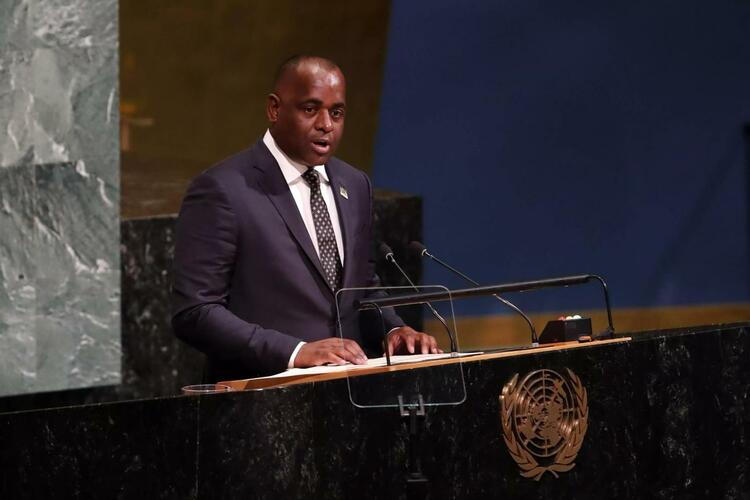
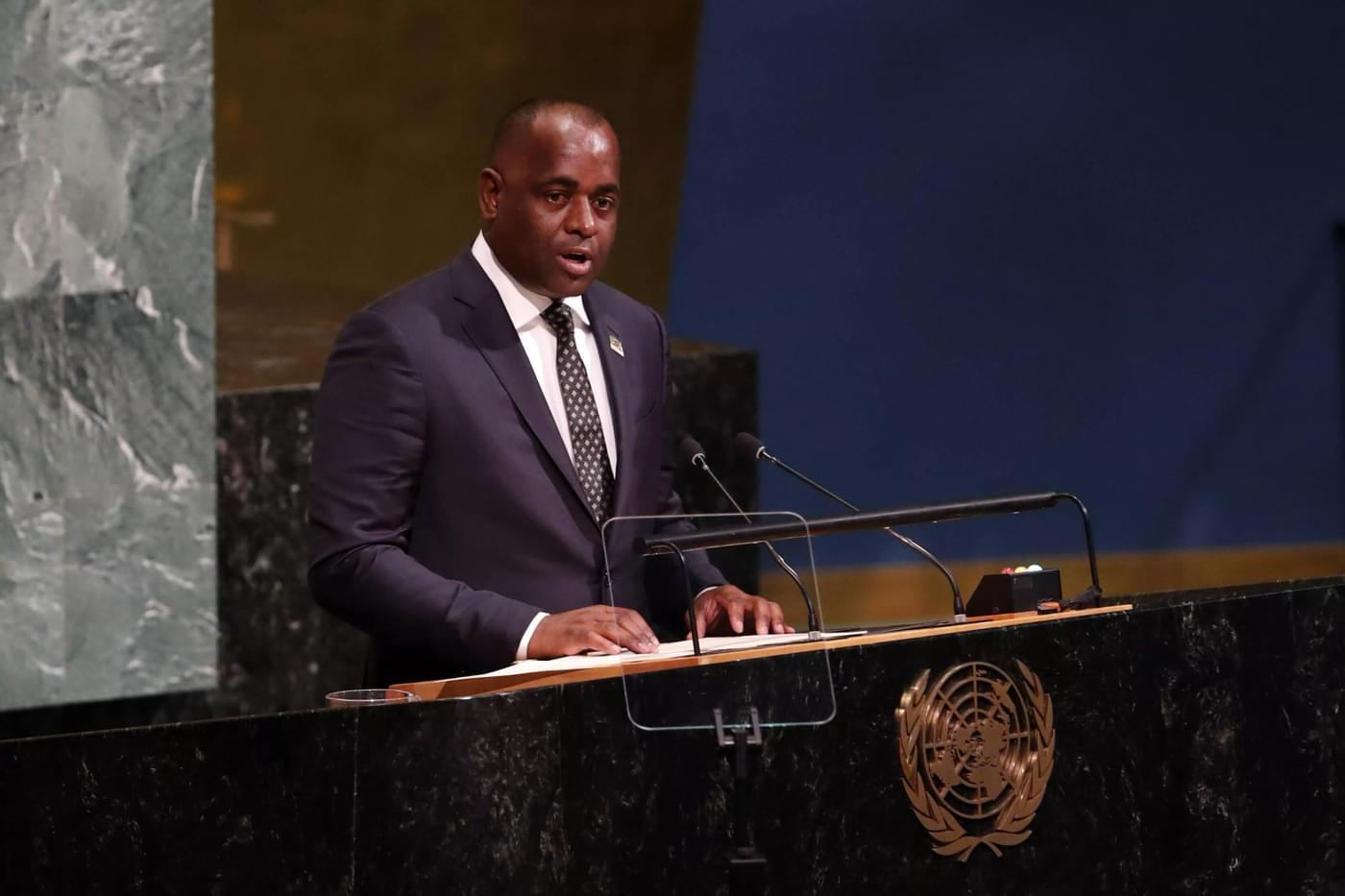
But experts say passports such as those sold by Dominica can be an attractive prospect for fugitives looking to set themselves up in jurisdictions beyond the reach of authorities back home.
“If you’re a government official embezzling public funds or a businessperson making dodgy deals, chances are you’re worried about future prosecution,” said Eka Rostomashvili of Transparency International.
“When the going gets tough, a golden passport in your back pocket allows you to skip town. New citizenship — and potentially a new identity — comes in handy if you want to evade law enforcement and prosecution efforts.”
Dominican officials contacted by OCCRP did not respond to requests for comment on the citizenship-by-investment program. OCCRP also reached out to local activists in Dominica, but they declined to speak openly, citing fears of possible retaliation.
The following is a list of people who obtained Dominica passports who are currently, or who have previously been, wanted by authorities.
Glory Oseidebame and Muyiwa Charles Folorunso - Oseidebame and Folorunso are Nigerian entrepreneurs who received Dominican passports in 2017. In 2021, Lagos police circulated bulletins seeking their arrest for allegedly defrauding investors out of up to 1 billion naira — roughly $1.3 million at today’s rates — through Ponzi schemes offering investments in start-ups in fields such as pig farming. Their warrants cited charges of obtaining money under false pretenses and theft. The pair are still wanted by Nigerian police, who told OCCRP they are seeking an Interpol red notice for their arrest. The pair did not respond to requests for comment.
Mehdi Ebrahimi Eshratabadi - Eshratabadi obtained a passport from Dominica in 2015. He also obtained a Cypriot passport under the name Tony Newman. He is currently wanted by Iran to face fraud charges in court and is subject of an active Interpol Red Notice issued in 2019. In March 2022, Cypriot authorities issued a notice saying they would revoke his Cypriot passport. Contacted by OCCRP, Eshratabadi’s lawyer said his client denied any wrongdoing and that he was fighting the charges. The lawyer said Eshratabadi had acquired his Dominica passport and changed his name legally “years before any allegations were made against him by the Iranian regime.” Of Cyprus, he said that “at the time when he applied for Cypriot citizenship, there were no pending criminal cases or allegations” against him. He said his Cypriot passport had not been revoked.
Prateek Vijay Gupta - Last year, India’s Central Bureau of Investigation sought Gupta’s arrest on charges of illegally siphoning off hundreds of millions of dollars from loans made by public sector banks. He obtained a Dominica passport in 2018. His current whereabouts are unclear. Gupta’s lawyer did not respond to requests for comment.
Aman Lohia - The son of an Indian businessman, Aman Lohia obtained a Dominica passport in 2018. That same year, he fled to Dubai with his young daughter — who also held a Dominica passport — amid a custody battle with his wife. Lohia and his daughter were brought back to India in 2020 after an Interpol red notice was issued against him. Lohia’s lawyer did not respond to requests for comment, and Indian authorities did not respond to questions about the current status of the case.
Preeti Chandra - The wife of Sanjay Chandra, an Indian real estate promoter who was convicted last year for money laundering and is currently serving a prison sentence in India. Preeti Chandra was also convicted last year by a lower court in the same case for helping move her husband’s money overseas. (She has appealed the sentence at the country’s highest court and is currently out on bail.) She was arrested the previous year while attempting to use her Dominica passport — which she obtained in 2009 — to leave the country, Indian investigators said in court filings related to the case. The two did not respond to requests for comment.
Roman Viktorovich Vasilenko - Vasilenko, who obtained his Dominica passport in 2018, has been wanted by Russia since at least 2022. In February that year, Russia’s Kommersant newspaper described him as the founder of Best Way, a consumer cooperative, and said that other Best Way managers — but not Vasilenko — had been taken into custody over the alleged defrauding of investors. Later that year, a notice on an official government portal said Vasilenko was wanted under Russia’s Criminal Code but did not specify the charges.
On Dominica’s citizenship-by-investment website, Skerrit says the island nation invites “individuals and families from around the world to invest in our country.” In exchange, he says, “we promise to provide them with citizenship of Dominica — a status that comes with a myriad of opportunities that transcend borders.”
As in the case of Mutasem Faouri, a Dominican passport can also offer opportunities to operate outside the reach of authorities back in their home countries.
The Faouris had first been investigated by Jordan’s Anti-Corruption Commission in 2011 before being arrested the following year. They were charged with abuse of position at Amwal Invest, a financial services firm where Fayez was chairman and Mutasem was chief executive officer. Local media quoted the chairman of Jordan’s securities regulator as saying the firm suffered damages of about 60 million Jordanian dinars ($84.5 million) due to the actions of the Faouris and others.
After years of appeals, a court issued a sentence in May this year: Fayez received 10 years in prison and was fined 46 million dinars, Mutasem was given 12 years and fined 49 million dinars. (Jordanian court records show the case is being appealed again.)
By then, Mutasem had long vanished. How he evaded authorities is unclear. But a 2021 Jordanian court judgment said that he had previously bribed a police officer to tip him off about arrest orders against him and his father, without specifying when. The officer was sentenced to 18 months in prison; Mutasem did not face charges in the case.
The only clue as to Mutasem’s current whereabouts reporters could find appeared in the commercial registry in the U.K., where he late last year: In each, he listed his nationality as Dominica, and his “country of residence” as the United Arab Emirates.
The Faouris did not respond to requests for comment.
Concerns about how thoroughly Dominica was vetting the people buying its passports prompted the U.K. to revoke visa-free access for the island nation’s citizens in July this year. The Home Office told OCCRP that their concerns included poor due diligence checks on applicants, new citizens being allowed to change names on their Dominica documents, and the lack of a Dominica residency requirement for applicants.
Rostomashvili said it was “no secret” that visa-free access to the European Union and U.K. had been a major selling point of Caribbean citizenship-by-investment programs.
“It is legitimate for a country to make it easier for foreign investors to reside and do business there. But golden passport schemes are not about investment, and they are also not about migration,” she said.
“Governments running such programs are not properly screening applicants or asking enough questions about the source of funds invested.”
In at least one prominent case, a man who was invited into the island nation’s circles of power later ended up wanted and arrested back home: The Iranian oil seller Ali Reza Monfared.
After the United Nations imposed sanctions on the Iranian oil and banking sectors in June 2010, Monfared worked to sell millions in barrels of Iranian oil on behalf of the government. At the same time, he allegedly helped embezzle millions of dollars in the proceeds of those sales before leaving the country, according to a later conviction against him in Iran.
By 2014, Monfared was reportedly moving between Malaysia and Spain, and by August had arrived in Dominica, where he and his family had held nationality through the citizenship-by-investment program since 2009. (His case was originally reported by Al Jazeera in 2019 and the original documents were obtained and reviewed by OCCRP.)
In Dominica, Monfared registered three companies, including a taxi firm. He returned to Malaysia in September 2014, and used his Dominica passport to register My Dominica Trade House, a company that marketed the Caribbean nation’s citizenship programme in Malaysia.
One of the selling points was confidentiality. The company’s website promised that “no information” would be sent to the applicants’ country of current citizenship or residency.
In Malaysia, Monfared hosted lavish gatherings for high-ranking Dominica officials at his family home, dubbed the “Behnaz White House” in honor of his wife, according to images posted online and a former housekeeper interviewed by OCCRP. The former housekeeper told OCCRP that Monfared would frequently host important figures from overseas, including Dominica’s Prime Minister Skerrit.
In March 2015, Dominican authorities issued Monfared a diplomatic passport which would have in theory offered him immunity from prosecution when he traveled with it. It was revoked by Dominican authorities in 2016.
The following year, Iranian agents took Monfared back to Iran from the Dominican Republic, where he was seeking medical treatment, according to Monfared’s son, Mehdi Monfared. The next year, he was handed a lengthy prison sentence.
Reporters found that Mehdi Monfared has since used his own Dominica citizenship to set up a company in Turkey, founded in June 2022, to sell passports for a variety of Caribbean countries, including Dominica.
Mehdi Monfared told OCCRP that the family “sought Dominican citizenship primarily to explore business opportunities in the Caribbean region.”
He said his father “was not involved in the direct sale of sanctioned Iranian oil or the alleged misappropriation of proceeds. His role was not in the sales aspect but rather in providing auxiliary services to companies within the oil industry.”
He said his father’s close relations with Dominican government officials were a “natural consequence” of his business expertise, and that his father had resigned from his diplomatic role when he became aware a case might be opened against him in Iran.
“It is crucial to clarify that my father was not involved in any efforts to evade or hide from authorities during his time as a diplomat or any other instance,” he said.
In Taiwan, Pai-Hung Wang made a name for himself holding public lectures on unconventional real estate investment techniques. Between 2013 and 2018, he appointed assistants to incorporate at least four companies that arranged courses to teach these and other investment techniques and collected tuition fees.
Two of these companies would later appear as defendants in a 2019 criminal case in which Wang and his wife were charged with violating bank law. (The couple have not been tried and are currently wanted by authorities, though other employees and the companies were convicted.)
In 2016, after attracting thousands of students to these real estate courses, Wang had started to tell his students of a business plan to grind gold into powder for transport to India and Japan, where it could be sold for profit, according to the judgment issued against their co-defendants in the case. Wang and his employees had promised investors a return of between 20 and 36 percent per year, depending on how much they invested.
One of Wang’s former students, Lin Yu Fu, told OCCRP’s partner The Reporter that Wang would also tell them “shocking secrets about every financial field, such as where to buy the cheapest Louis Vuitton bag, and how to buy stocks,” Lin told The Reporter.
Lin said Wang would encourage students to take loans from banks, no matter how bad their financial state was. “It was very cold-blooded, because I saw that the students around me got huge loans,” he said.
Although Lin himself didn’t take out a loan — which he said would have been a “catastrophe” — he said he was convinced by Wang to invest his entire net worth of roughly 120,000 New Taiwan Dollars (about $3,700) into one of Wang’s smaller investment plans. In the end, he said, he got nothing back.
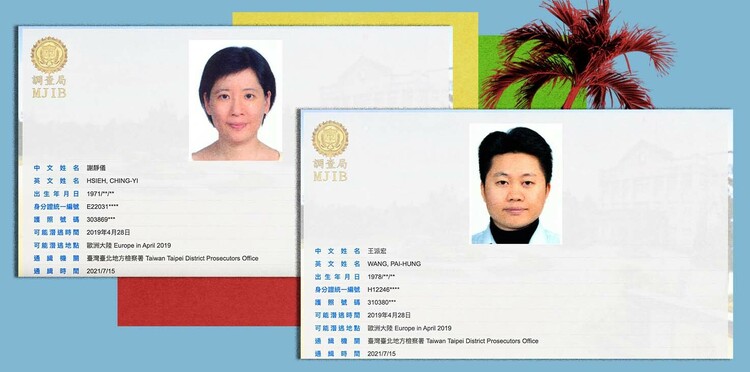
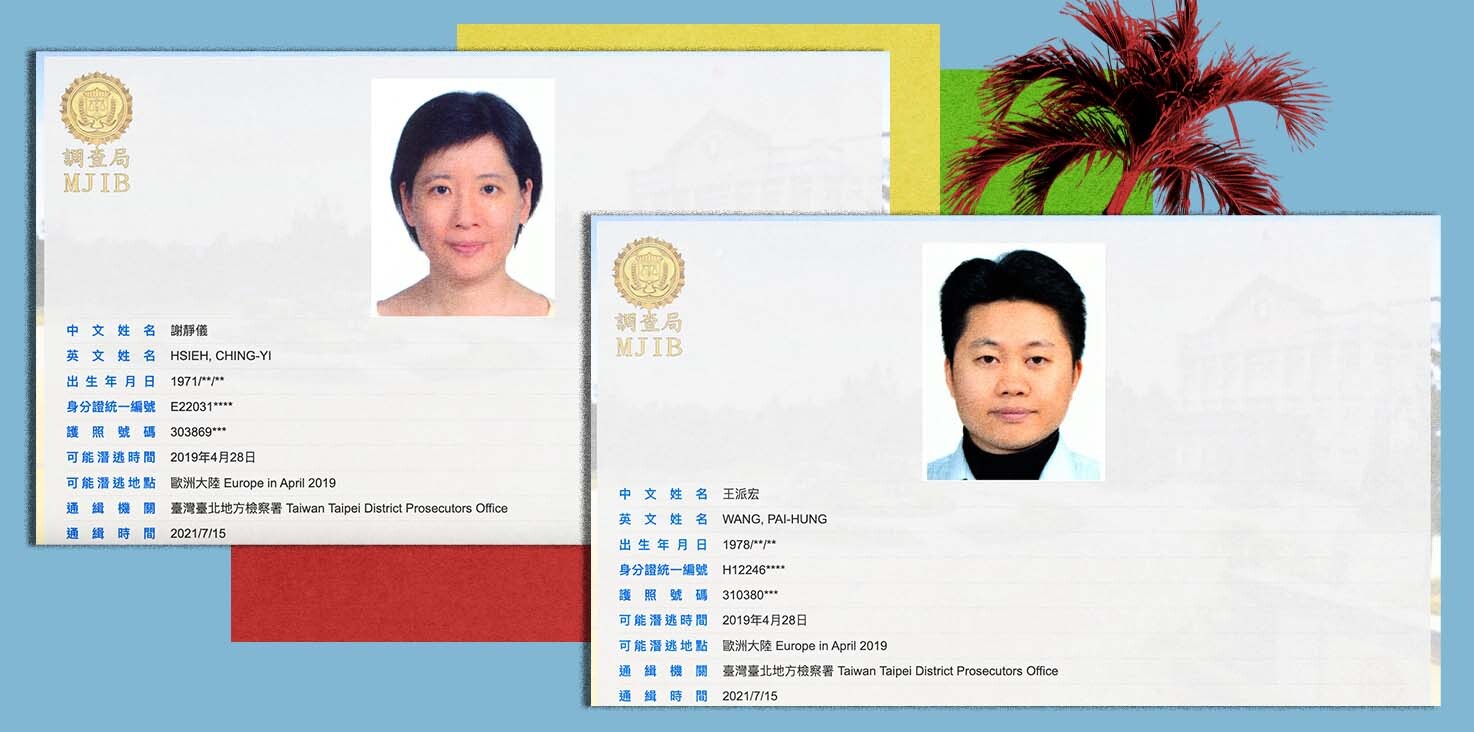
Lee Ping Chi, the prosecutor in charge of the case, told The Reporter that Wang would also hire students as assistants to contact potential investors, sign contracts with them, and provide accounts to collect funds which ultimately ended up in Wang’s account.
“When students who are interested in making quick money take the bait, who will help them invest? It’s also Pai-Hung Wang,” he said.
After raising nearly 1 billion New Taiwan Dollars in investments (worth more than $32 million at the time), Wang and his wife, Ching-Yi Hsieh, left Taiwan in April 2019, according to court records from the against them.
About two years earlier, in 2017, around the same time they were allegedly carrying out the fraud, both Wang and his wife had obtained Dominican citizenship, OCCRP and its partners found. It is not clear whether or not they used the passports to travel after the fraud charges.
Thirteen employees accused of helping the two were sentenced to fines and prison terms in the Taiwan New Taipei District Court in June 2021. (Taiwanese court records showed no record of an appeal.) Two of Wang’s companies were fined 20 million New Taiwan dollars ($600,000) each.
Wang and his wife are currently wanted in Taiwan, and reporters were not able to confirm their current whereabouts. Neither could be reached for comment.
Around the same time, across the world in California, the immigration attorney Danhong Chen was allegedly preparing bogus investments of her own.
In 2019, the U.S. Department of Justice accused Chen and her now-ex-husband of carrying out “large scale immigration fraud” and indicted them for visa fraud, identity theft, and obstruction of justice. The charges were based on a civil complaint filed by the Securities and Exchange Commission in October the previous year.
The case is ongoing and Chen, who did not respond to requests for comment, is currently wanted by authorities. Her husband served a one-year prison term before being released in December, 2022.
That very same month, at roughly the same time the SEC filed its complaint against her, Chen became a naturalized citizen of Dominica, court filings from the U.S. Attorney’s Office for the Northern District of California read.
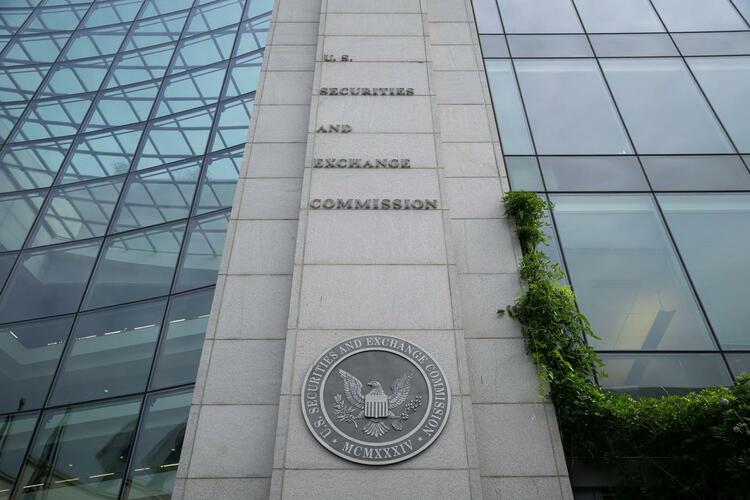
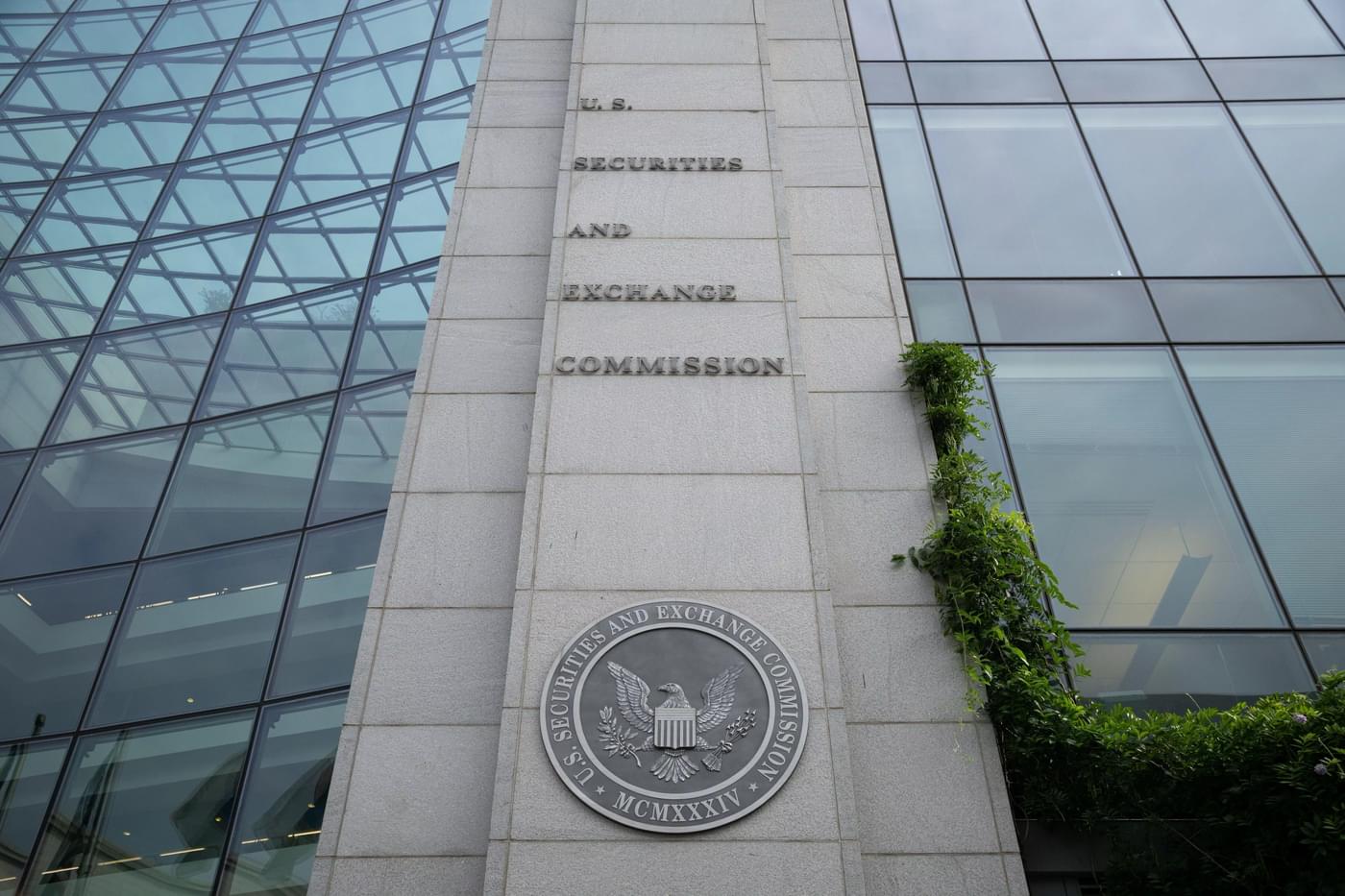
The 14-count indictment alleged that the pair used fraudulent methods to get immigration benefits for more than 100 investors into America’s so-called EB-5 visa program.
The program lets investors, their spouses, and children secure U.S. green cards if they invest in a business that creates 10 full-time jobs for American workers. Under the regulations, entrepreneurs can set up regional centers to promote investment opportunities for EB-5 applicants.
The indictment said that Chen and her husband — whose clients had invested some $52 million into EB-5-eligible projects — used fake documents to fraudulently gain benefits for clients through one of these centers, Golden State, which they secretly owned.
In 2014, the indictment said, the couple bought Golden State and almost immediately transferred it to a straw buyer who did not know she was named as owner.
Using false signatures from the straw owner, Chen and her husband then allegedly filed papers to the U.S. immigration asking them to continue to recognize Golden State as an EB-5 promotion hub. They also lied about their involvement on both sides of the deal, and about how the money from investors would be used, the SEC said in a statement.
The SEC said they secured over $10 million in “undisclosed commissions” by selling EB-5 securities to clients.
The couple then carried out a “cover-up operation, which included, among other things, refusing to produce documents, manufacturing exculpatory evidence, and scrubbing additional records in an attempt to obfuscate their involvement in the schemes,” the SEC said in its complaint.
Immediately after the SEC filed its complaint, Chen left the U.S., the Justice Department said. The office confirmed to OCCRP that she remains a fugitive to this day. Authorities believe she may be going by the alias “Maria Sofia Taylor.”
Additional reporting by Yan Yan and Sharad Vyas.
Fact-checking was provided by the OCCRP Fact-Checking Desk.